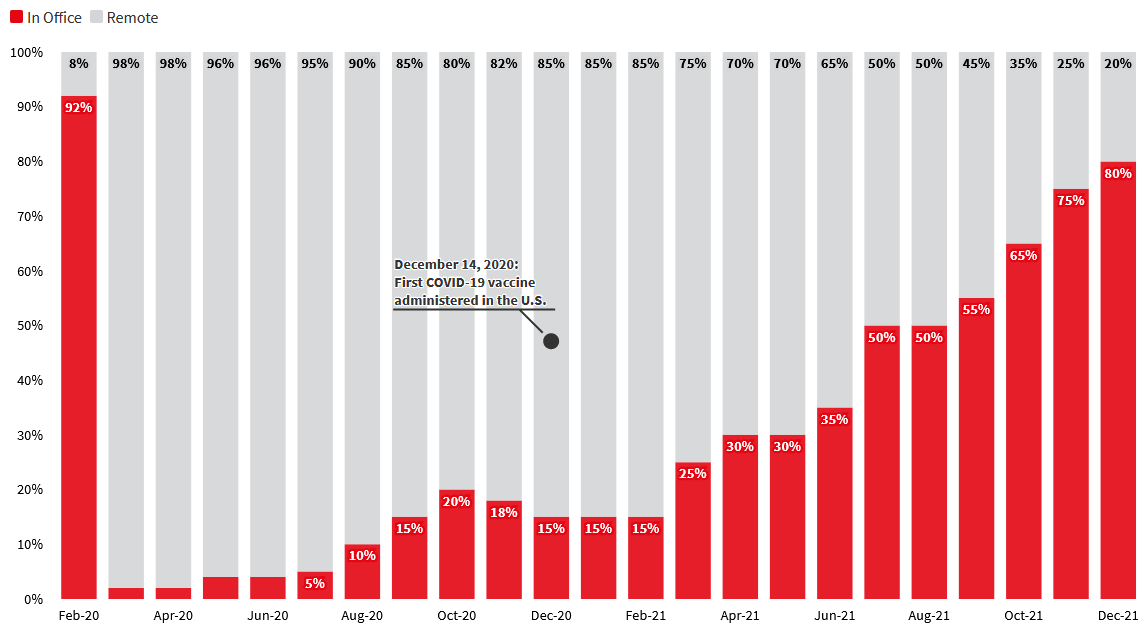by Brianna Crandall — February 5, 2021 — Global real estate and professional services firm JLL recently released a research report, Better than Normal: Vision 2021, which explores potential opportunities and modifications society may embrace as a result of the unprecedented disruption spurred by Covid-19. According to the report, the pandemic exposed shortcomings in previously considered normal processes and conditions across industries, property types and regions.
JLL Senior Director of Research Christian Beaudoin remarked:
After a year of research, surveys, interviews and analysis, we can state with confidence that we will never return to what most people considered “normal” at the beginning of 2020. The world has evolved and accelerated in ways that will alter our future, and there is no going back.
Transformations are expected across all property types, according to the report. For residential and multi-housing, the shift to part- or full-time remote work had “kitchen tables transformed into desks,” dramatically altering the living needs of renters, who now predictably demand more space and flexibility from their units.
Urban core and suburban office lines will also blur as location strategies place greater importance on employee preferences surrounding commutes, affordability, and mobility trends. The pandemic has accelerated the migration of some young, educated professionals to suburbs and secondary markets.
As economic recovery efforts strengthen across the US, the competition for talent will intensify, increasing pressure on employers to differentiate based on location, amenities, and environment. Now more than ever, it’s critical for real estate investors, developers, and decision-makers to understand which cities and suburbs are experiencing job growth and attracting highly educated talent, says JLL.
Sustainability will increase in importance for industrial properties, with a focus on carbon-neutral supply chains, environmentally friendly package design, and a greater emphasis on renewable energy sources. With e-commerce up by 20 percent in 2020 alone as consumers opt for convenience, the US industrial sector “needs an estimated 1 billion square feet of new industrial space this decade to keep up with demand,” according to the report.
For the retail sector, the Covid-19 pandemic demonstrated how inter-connected the sectors within commercial real estate are. Without office users and large-scale tourism, urban retail experienced unprecedented challenges in 2020. However, there is reason for optimism in the new year. As people increasingly become more comfortable conducting regular day-to-day activities and adapt to social practices, such as social distancing, urban retailers must be prepared for the return of the in-person consumer, says JLL.
Observed and projected US office re-entry timeline
For more insights and information, download the report: Better than Normal: Vision 2021.
Human Experience report
For additional insights into the future of the workplace, see also JLL’s global Human Experience report from November.
JLL (the brand name of Jones Lang LaSalle Incorporated) operates in over 80 countries around the world and employs a global workforce of over 92,000.





